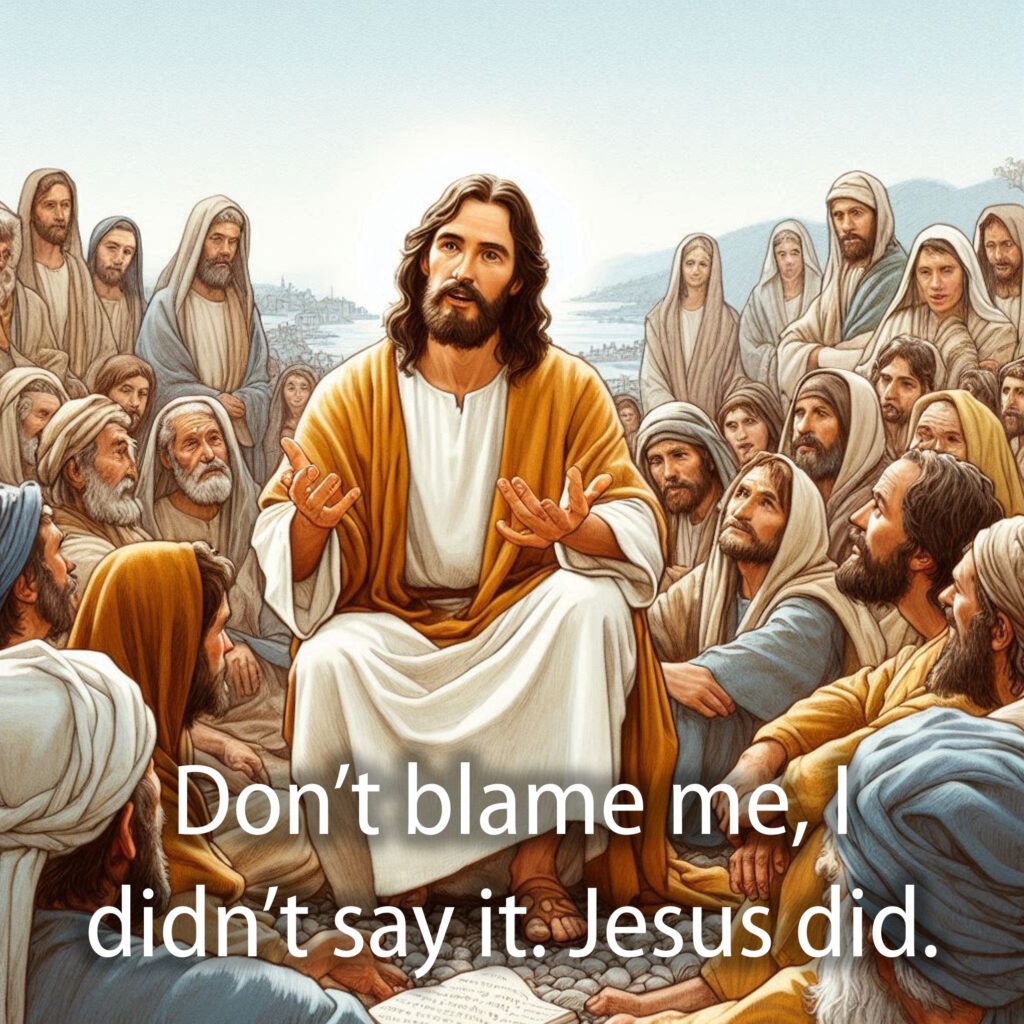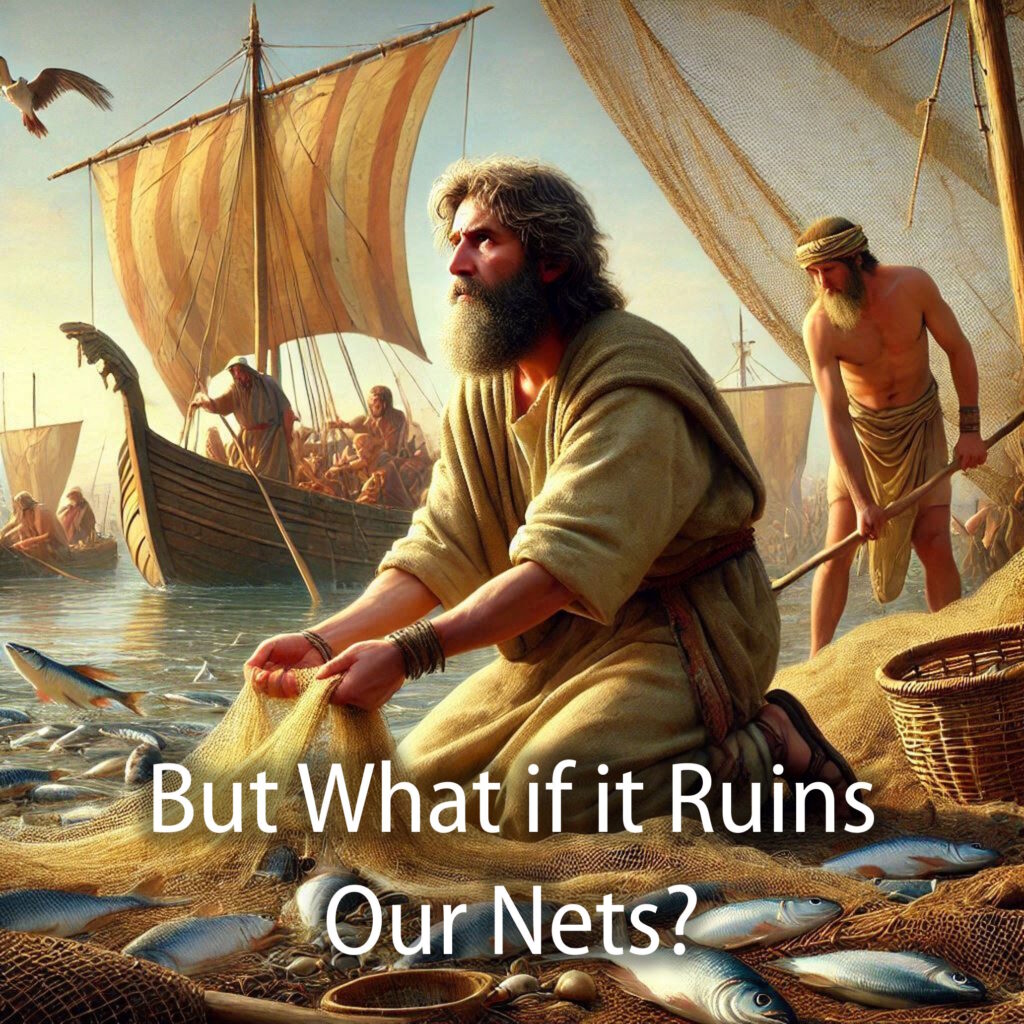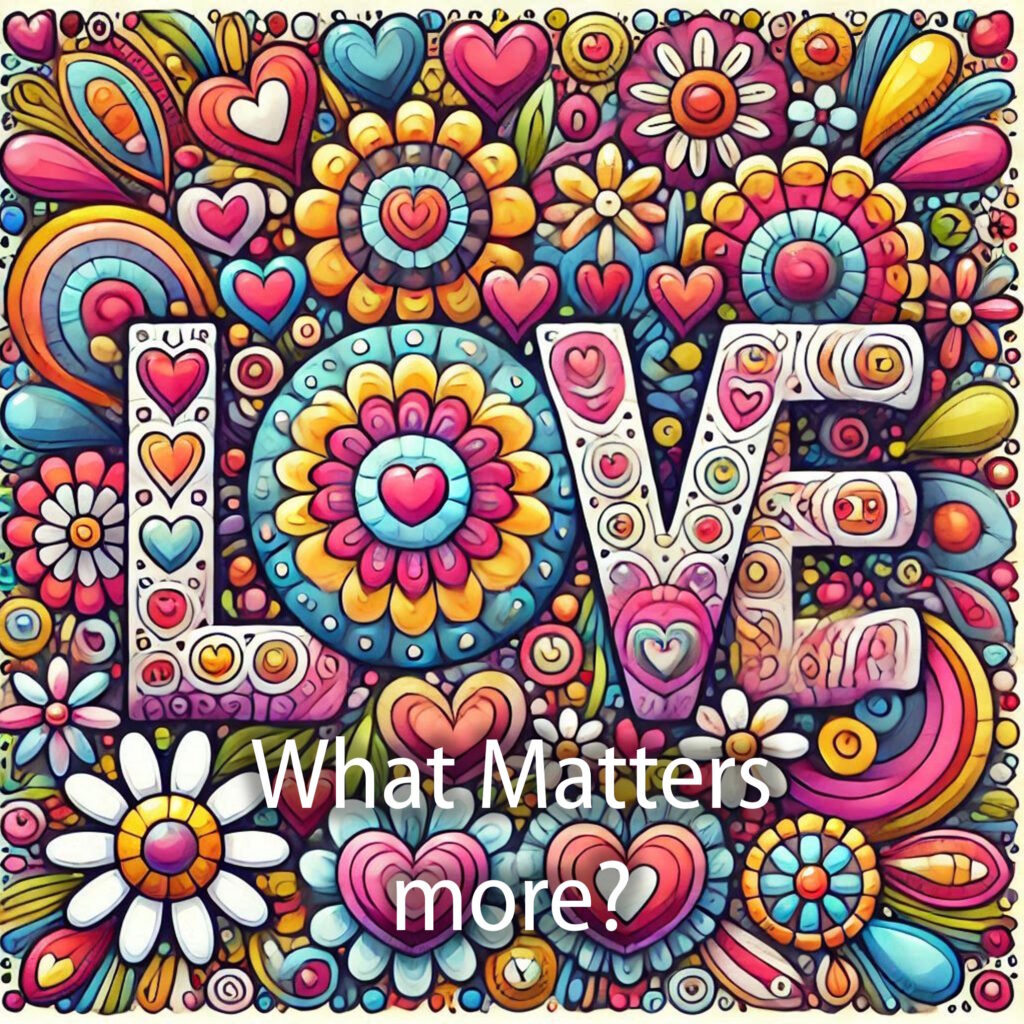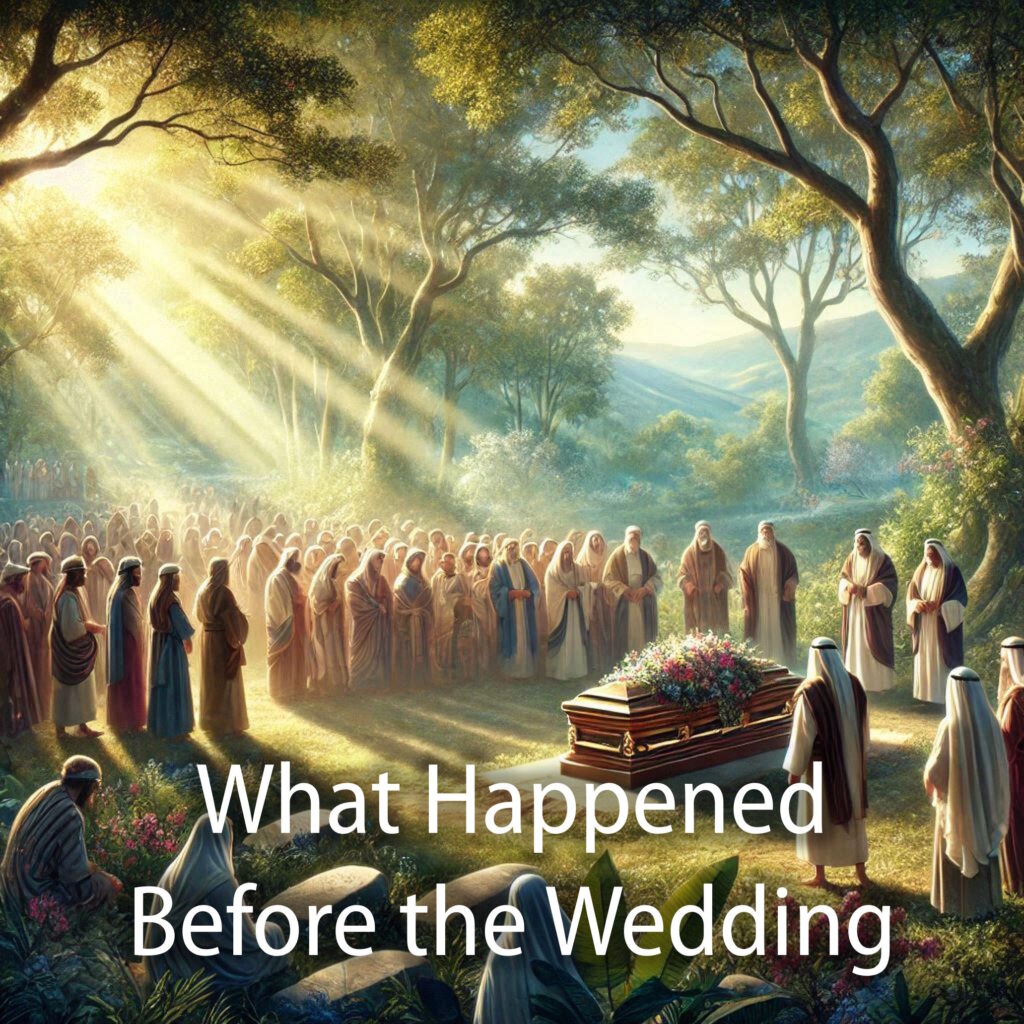In the Gospel of Matthew, the beatitudes of Jesus – that famous list of those who are blessed – are delivered from a mountaintop. That is why we call it the Sermon on the Mount. Mountains represent hierarchy – the idea that some things are naturally higher than and rule over others. In Matthew the beatitudes are literally a teaching that is handed down from on high.
I find it interesting that, when the same teaching is featured in the Gospel of Luke, the setting is so strikingly different. There Jesus delivers the beatitudes “on a level place.” Rather than looking down upon his disciples, Luke says that he looked up at them.
A Different Perspective
Surely this represents a different perspective on this very important teaching of Jesus. It is given in a setting where everyone is on the same level. Everyone, at least in Jesus’ eyes, is equal. And that perspective definitely changes the meaning of Jesus’ words, doesn’t it?
For one thing, it means that Jesus’ words are no longer directed only to certain people in the crowd – those he sees as particularly worthy of blessing. He must also address the others.
And I would like to reflect on one of those teachings today. I would like to imagine it not only reverberating across the people standing in that level place, but also to imagine these words echoing down through the centuries until today. I wonder how people might hear them in our times.
That teaching is this: “But woe to you who are rich, for you have received your consolation.” Or, as it is put in the Good News Bible, “you have had your easy life!”
Prosperity Gospel
Imagine, for example, those words echoing down all the way to the pulpits of certain modern preachers. There are a number of them who, in our times, preach something called the “Prosperity Gospel.” Their message is fairly simple, and often quite persuasive.
If you listen to their messages, they will inform you that God wants you to be wealthy, like really wealthy. And they will promise you that, if you only live out the Christian Life in the way they tell you, which almost always includes committing to send them significant amounts of money, God will make you extremely rich.
These Prosperity Gospel preachers are always an excellent example to their flock as they demonstrate how to live a lavish lifestyle replete with mansions, private jets and expensive parties. Oh yes, they show you how to be wealthy.
Biblical Basis and Misuse
This way of understanding the gospel is not just wishful thinking or something that they made up. There are definitely passages in the Bible that seem to proclaim a sort of Prosperity Gospel. The Psalm that we read this morning is a perfect example.
The psalmist describes righteous people like this: “They are like trees planted by streams of water, which yield their fruit in its season, and their leaves do not wither. In all that they do, they prosper.” You see, it is right there. If you are righteous, if you are someone who always does the right thing, prosperity is guaranteed.
It is a lovely thought, of course. Imagine living in a world where everyone who did the right thing was always generously rewarded. But here is the thing. It is not always easy to judge someone’s righteousness or right action. But it is pretty easy to see who is really prosperous and who is not.
Teaching Turned on its Head
That’s why this teaching of the Bible often gets turned on its head. We look around and see all the extremely wealthy people and conclude that, if they are rich, God must have blessed them. And if God blessed them, it must be because they are righteous. The other side of that coin, of course, is that, if people are poor, it must be because they are bad. They must deserve it.
This is an assumption that it is so easy to fall into in our world. And the preachers of the Prosperity Gospel take advantage of that easy assumption. But anyone who pauses and reflects has to realize that things simply don’t work that way. There are also lots of Bible passages that complain about the evil who prosper and the righteous who are mistreated.

So, perhaps when these words of Jesus come echoing down through the centuries till today, we need to allow them to challenge the ways we think about the rich and just how worthy they really are to enjoy their prosperity. Perhaps we need to allow them to challenge the easy judgments we make of those who are in the ranks of the poor.
A Famous Scene
But the preachers are not the only ones who need to be challenged by these words of Jesus. Let’s imagine, for a moment, them carrying all the way to a scene that famously took place about a month ago. On that day, three people were gathered in one place who were the richest people in the entire world. Their names were, in order, Elon Musk, Jeff Bezos and Mark Zuckerberg.
But let me be a bit more precise. They were not just the three richest people in the world at that moment. They are the three richest people who have ever existed in the entire history of the world. More wealth was concentrated in that one spot than has ever been extracted from the global economy before. And it is wealth that every single one of us has contributed to because you actually cannot function in the modern world without using the various services that have made them so wealthy.
Now, was Jesus speaking to them when he said, “But woe to you who are rich, for you have received your consolation”? He absolutely was. Sure, nobody in the crowd that day would have been able to imagine that such people could ever possibly exist. But there is no better example of what Jesus was really talking about.
Having Enough
So, what would they think if those words came to them? I suspect that they would find them hilarious. I think that they would especially laugh at the part where Jesus says to them, “you have received your consolation.” That implies, doesn’t it, that they have enough – that they don’t need anything more.
And let me tell you something. There is no group that is less satisfied with what they have than multi-billionaires. Every so often you will hear someone argue that billionaires make the best leaders because they already have what they need and so they won’t be tempted to engage in corruption or self-serving.
Insatiable Billionaires
That may sound reasonable. It is true that billionaires have so much money that they could never possibly spend it on themselves or their loved ones (if they have them) in several lifetimes. But it is actually only the very rare billionaire who ever decides that they have enough.
This is something that is absolutely undeniable as we see over the last few decades that all of the people who have billions have constantly managed to amass more and more. They have clearly decided that they have not yet received their consolation.
So, how would those billionaires react if they heard these words of Jesus echoing down to them. I think that I can hear them laughing from here.
Who Owns the Kingdom?
But there is another reason why they would laugh. This saying is contrasted in the Gospel with Jesus’ opening beatitude. “Blessed are you who are poor, for yours is the kingdom of God.” So, Jesus has just promised the poor a kingdom and now goes on to say that the rich have already received as much as is coming to them. In other words, no kingdom for them!
Now, what kind of kingdom Jesus means when he says “the kingdom of God” is obviously a big question that we’ll come back to. But whatever this kingdom looks like, he is definitely saying that the poor get to rule over something.
And would our modern multi-billionaires laugh at that? You bet they would. I’m not sure we’ve all come to terms with this yet, but we are actually increasingly living in a world where the extremely wealthy have pretty much taken over.
Failing Systems
And yes, I know, you will say to me that our democratic systems of government are still in place and so the oligarchs are technically not in control. But the wealthy have such control over everything that keeps our democracy running that it doesn’t seem to matter very much. When, for example, they control almost all of our primary modes of communication, do they not also control most of the levers that flip our democracy one way or the other?
They have taken over the kingdom of this world and they don’t seem to be hesitating to use their position to build up their wealth and power even further. I kind of suspect that Elon Musk might take over the entire U.S. Treasury at some point if he hasn’t already. And the world is not stopping them. It seems to have declared, “You who are rich are obviously blessed, so why don’t you just take over everything and we’ll hope for the best.”
That is the simple truth, these words of Jesus would be met with nothing but mockery and derision from the wealthy of our world if they were spoken today. And so it also was when Jesus first said them.
Why did He Say it?
So, why did he say it? He was obviously not offering a commentary on how the world actually works, because it doesn’t work that way. It never has. It is clear that he was offering a picture of an entirely different system – a picture of the way that the world should work, rather than a pragmatic picture of how it does work. That is what he means when he talks about the kingdom of God.
I know that we often speak about the kingdom of God as something that is only achieved in another world – a place we go only after we die. I understand where that kind of thinking comes from. The picture of a world where the extremely rich are satisfied and not in the process of taking over that Jesus presents here seems so impossible that we are often left thinking that the kingdom of God must be a literal pie in the sky idea.
But Jesus wasn’t talking about what might happen in heaven one day. He was talking about here and now. He said “Blessed are you who are poor, For yours is the kingdom of God.” And he spoke of the consolation of the rich as something that was over and done with.
So what do we do with that? Because I am not ready to say that Jesus was just delusional and had no understanding of what he was talking about. I hope you aren’t either.
An Alternate System
Jesus was proclaiming that the world’s system and much of its functioning was corrupt. But when he spoke about the kingdom of God, what he was promising you and me was that we don’t have to live according to that system. We, by choosing to follow him, could opt out of this world’s system and choose to live in an alternate system – this thing that he called the kingdom of God.
And living in the reality of the kingdom of God is not just living in denial of how the world really works. It makes a practical difference. It is a difference that is to begin here, in the church, where we are called to live into the reality that, as Paul wrote, “There is no longer Jew or Greek; there is no longer slave or free; there is no longer male and female, for all of you are one in Christ Jesus.” He also could have added that there is no rich or poor, no oligarch and no powerless people in the thrall of oligarchs.
It Starts Here
It starts here where we demonstrate to the world that things can actually operate according to a different system. And it extends from here as we reach out into the community to treat all people, no matter who they are – no matter if they are poor or immigrants or minorities or people who don’t fit into the traditional roles of society – as people who are more valuable in themselves than the richest billionaire is according to this world’s measure.
And if we do it right, o my family in Christ, if we do it right, we will shake the wealthy in the very halls of their power. It is, to be fair for a moment, something that the church has rarely gotten right in its long history, but the potential is there. That potential was what Jesus was talking about when he stood and shared blessings and woes on that level place.




